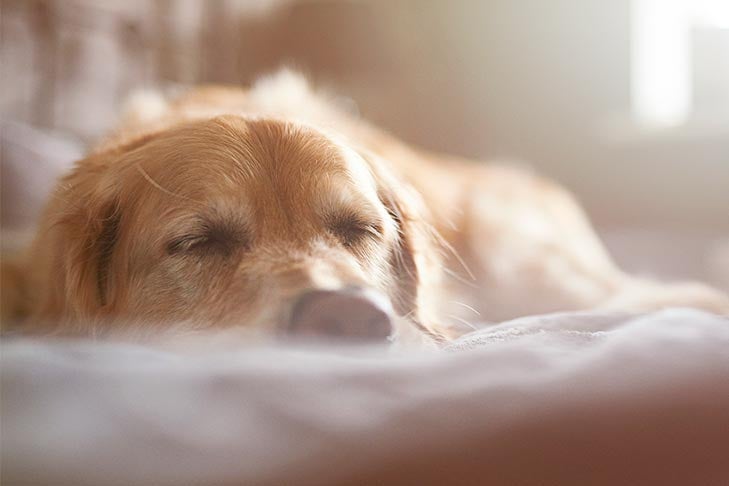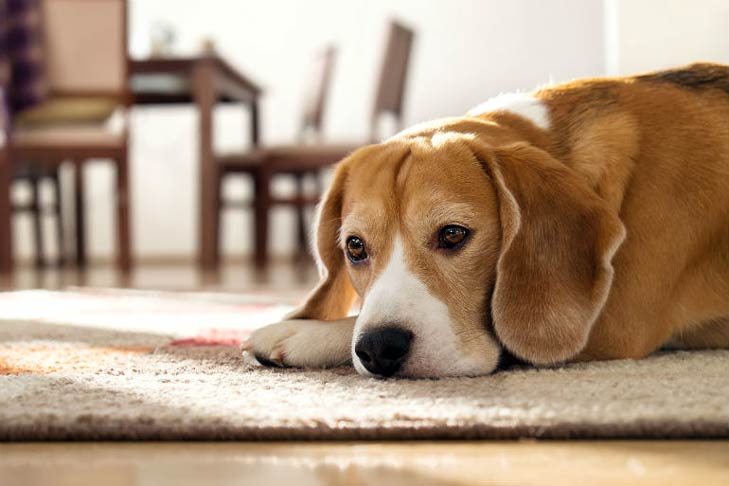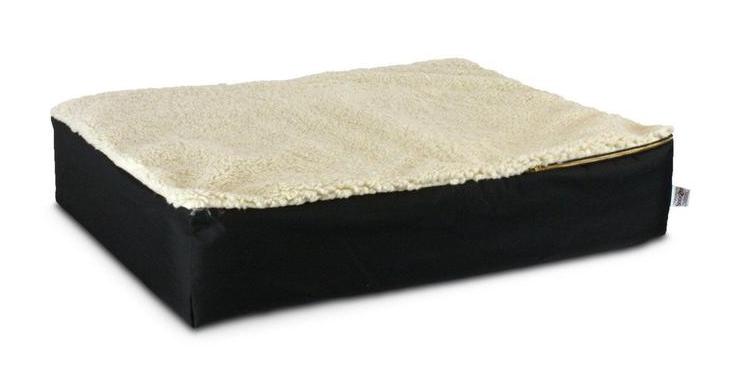
|
If you have a senior dog at home, then you know all too well that your pet’s health and behavior are likely to evolve and adapt over the years — and that includes sleep. But what differences should you expect and what are some signs it’s time to seek help from a vet?
For those with aging pets, here’s a closer look at what’s considered a “normal” amount of sleep for dogs as well as some changes to look out for with your senior’s sleeping routine that could signal potential underlying health issues.
What Does “Normal” Sleep Look Like for Healthy Dogs?
Dogs sleep a lot, even when they’re healthy and young. How much time per day, exactly? While puppies may be down for the count for up to 20 hours per day, fully grown dogs often get as many as 12 to 14 hours of Zzz’s in a 24-hour period — or about half the day. On top of that, they may spend an additional 30 percent of the day resting, meaning they may only be active about 20 percent of the day.
Dog Sleep by Breed and Size
For fully grown, larger breeds of dogs, non-waking hours can creep up even higher than their smaller counterparts — to up to 18 hours per day. More active breeds, like working dogs, can do with less sleep per day than more sedentary ones.
Senior Dog Sleep Basics
For starters, let’s talk about what we mean by senior — or older — pets. According to the American Veterinary Medical Association (AVMA), larger breeds become geriatric (or senior) when they’re about 6 years old, while smaller dogs are considered “old” starting at age 7.
As the years pass, it shouldn’t be surprising that your pet’s energy level will drop. For instance, if the two of you used to enjoy long hikes together, now your walking partner may tire more easily. That’s all part of the normal aging process, according to the AKC Canine Health Foundation, which explains that as your dog gets older, he or she is likely to sleep even more hours per day.

‘Too Much’ Sleep, Changes in Sleep Cycles, and Other Sleep Problems in Dogs
Getting shuteye can be restorative and getting more of it should be expected, but can there be too much of a good thing?
Changes in sleep cycles are among a list of possible behavior differences the AVMA explains humans should take note of as dogs age. Why? Fluctuations in behavior — including with sleeping — could be a warning sign of a possible disease.
Sleeping more often, for instance, could be an indication of arthritis, depression, diabetes or hypothyroidism.
More Signs of Sleep Problems in Senior Dogs
Dr. Jerry Klein, Cheif Veterinary Officer of the American Kennel Club, says if you have senior dogs at home, you should pay attention if you notice any of the following:
- Staying awake at night and wandering around aimlessly in the evening hours while acting confused or disoriented. “These signs could be early indications of cognitive degenerative disorders and your dog should be examined by your veterinarian,” says Dr. Klein.
- Not waking up to sounds or stimuli. This could potentially indicate pet hearing loss.
- Sleeping in different places. For instance, you may find your senior dog has begun sleeping in closets.
- Being reluctant to curl up to fall asleep or sleeping while sitting up or standing. Dogs may adopt these sleeping positions if fluid begins accumulating in their lungs or chest due to a heart condition or heart failure. If you spot this behavior, Dr. Klein says, “This definitely requires a quick check-up at your veterinarian.”
- Experiencing pain and discomfort. Dogs with arthritis, for one, may need more comfortable, orthopedic beds to ease their joints.
In addition to not sleeping the way they used to, your senior pet may also exhibit other behavior changes, such as appearing more lethargic, skipping meals, or not doing the things they used to do. If you observe any of the above sleep problems or any of these often coexisting issues, it’s time to seek help from your pet’s vet.
Dog Beds Your Senior Dog May Like
Senior dogs, arthritic dogs, and virtually any dog will appreciate this memory foam crate pad, which offers comfortable support. It’s covered with an ultra-plush material, just right for snuggling. And as a bonus, the materials are recycled and eco-friendly. It also makes life easy for you: machine-wash it and toss it in the dryer. Price: $40
Super Orthopedic Lounge Dog Bed
This supportive orthopedic dog bed is ideal for your aging dog. The waterproof cover is machine-washable and the zipper if rust-proof. The bed fits breeds of all sizes and the Sherpa fur top is comfortable and cozy. Price: $100
The Cozy Cave Bed is perfect for senior dogs who love to nest, burrow and snooze. The soft Sherpa fabric inside makes the bed extra cozy and the machine-washable cover makes it easy to clean. The added orthopedic foam and polyester batting will ensure that your senior dog will be extra comfy and appreciative. Price: $80
This article is intended solely as general guidance, and does not constitute health or other professional advice. Individual situations and applicable laws vary by jurisdiction, and you are encouraged to obtain appropriate advice from qualified professionals in the applicable jurisdictions. We make no representations or warranties concerning any course of action taken by any person following or otherwise using the information offered or provided in this article, including any such information associated with and provided in connection with third-party products, and we will not be liable for any direct, indirect, consequential, special, exemplary or other damages that may result, including but not limited to economic loss, injury, illness or death.




